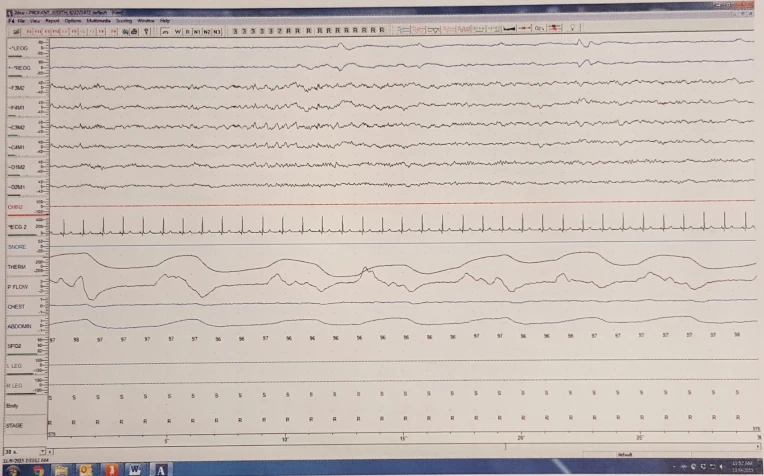Common Sleep Disorders Treated at Sleep Centers of Northern Virginia
If you have trouble falling asleep, staying awake, or sleeping through the night, you may be among the one-third of Americans estimated to have sleep disorders. Left untreated, sleep disorders can lead to chronic fatigue, disorientation, and the inability to accomplish everyday tasks.
Diagnosis of some sleep disorders may involve special studies that involve placing sensors on a person's body to measure heart and breathing rates, brain wave activity, and body movement.
At Sleep Centers of Northern Virginia, physicians specially trained in sleep medicine may use polysomnography (sleep studies) to diagnose and treat sleep disorders.

Sleep Apnea Syndrome
Patients with sleep apnea syndrome stop and start breathing several times while asleep. This may occur several hundred times a night, with each occurrence lasting several seconds, causing heavy snoring, morning headache, sore throat, or daytime drowsiness.
If not properly treated, sleep apnea syndrome may result in irregular heartbeat, high blood pressure, heart failure, lung disease, and impotence.
Insomnia
Insomnia is the inability to fall asleep. It may be caused by psychological factors, such as depression or stress, sleep apnea syndrome, muscle twitches during sleep, or physical pain. Environmental factors, such as lifestyle and personal crises, may also result in insomnia.
Periodic Leg Movement Syndrome
This condition involves leg muscle twitches that usually occur every 20 to 40 seconds during sleep. It leaves the patient feeling restless during the night or excessively tired and sleepy during the day, and can often lead to insomnia.
Narcolepsy
A person with narcolepsy falls asleep involuntarily at different times throughout the day. He or she may fall asleep while driving, eating, or talking. A narcoleptic may lose muscle control during an emotional experience, such as crying or laughing. Narcolepsy can cause extreme frustration for the sufferer and can lead to life-threatening situations.
